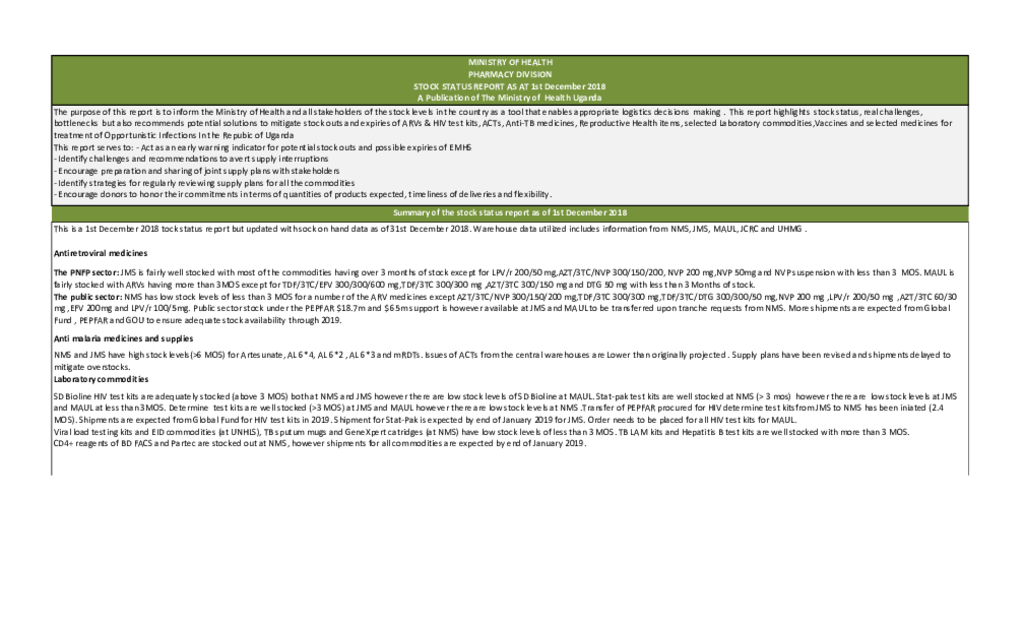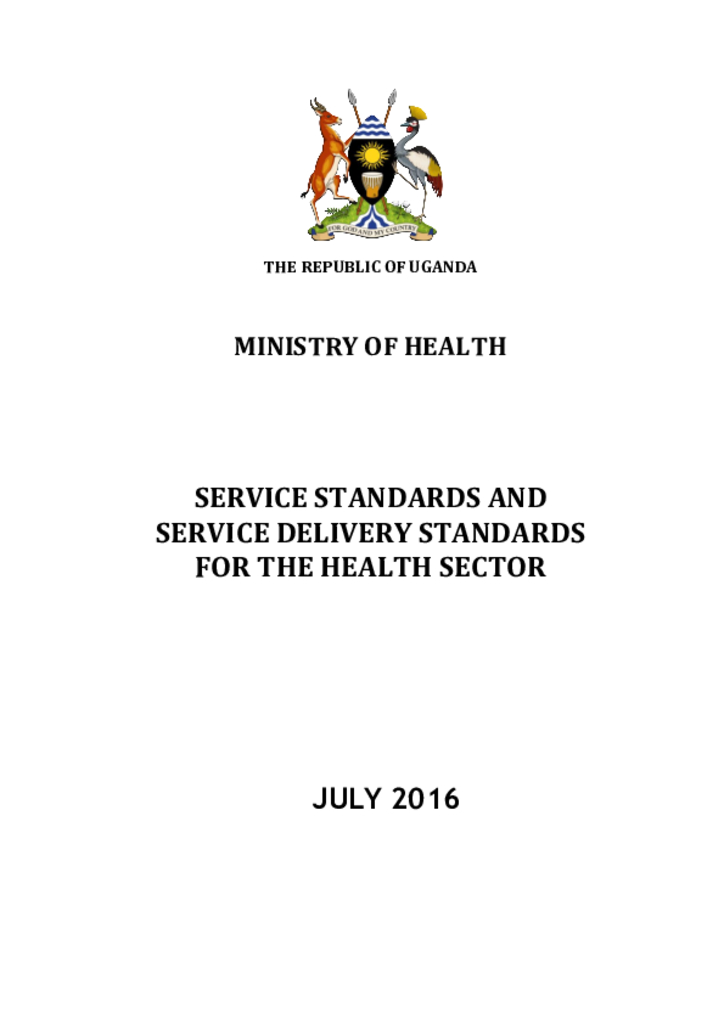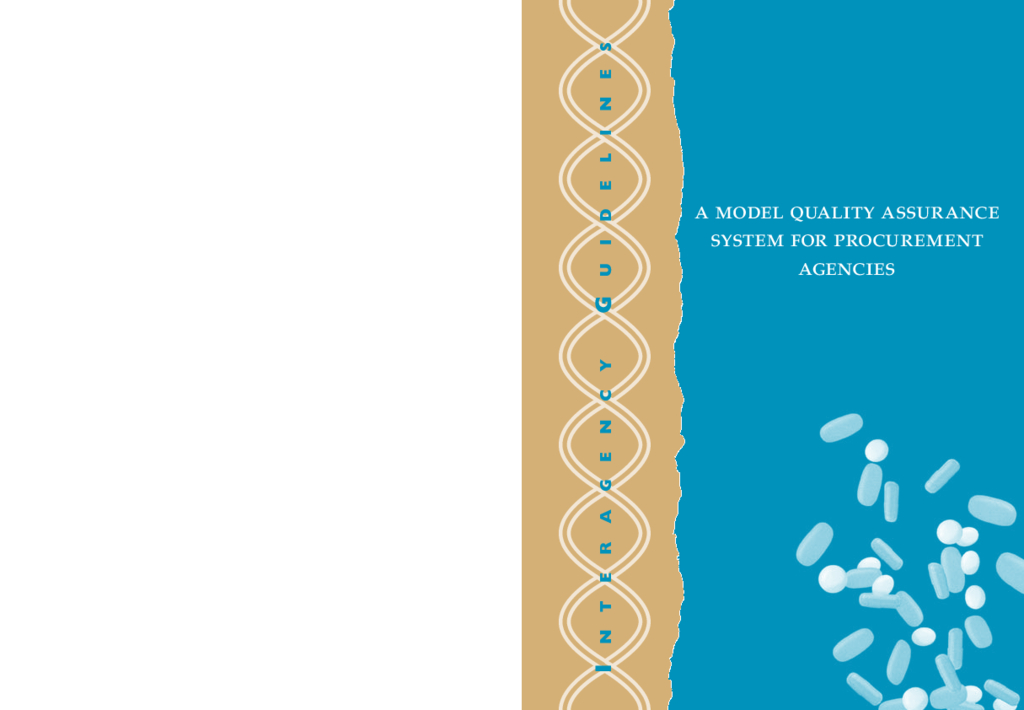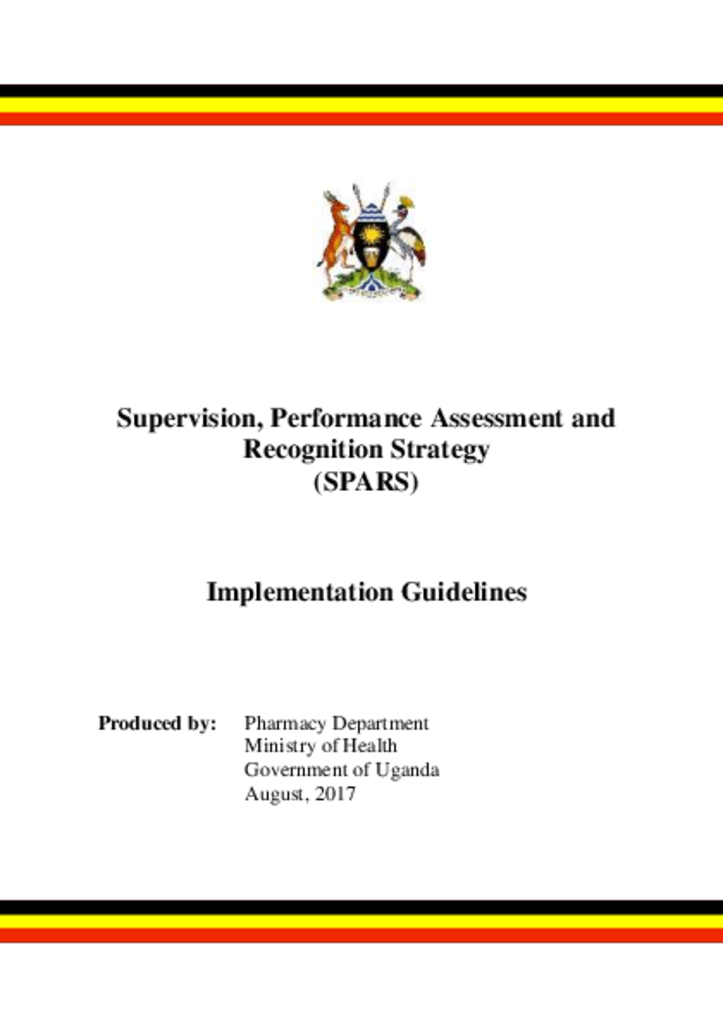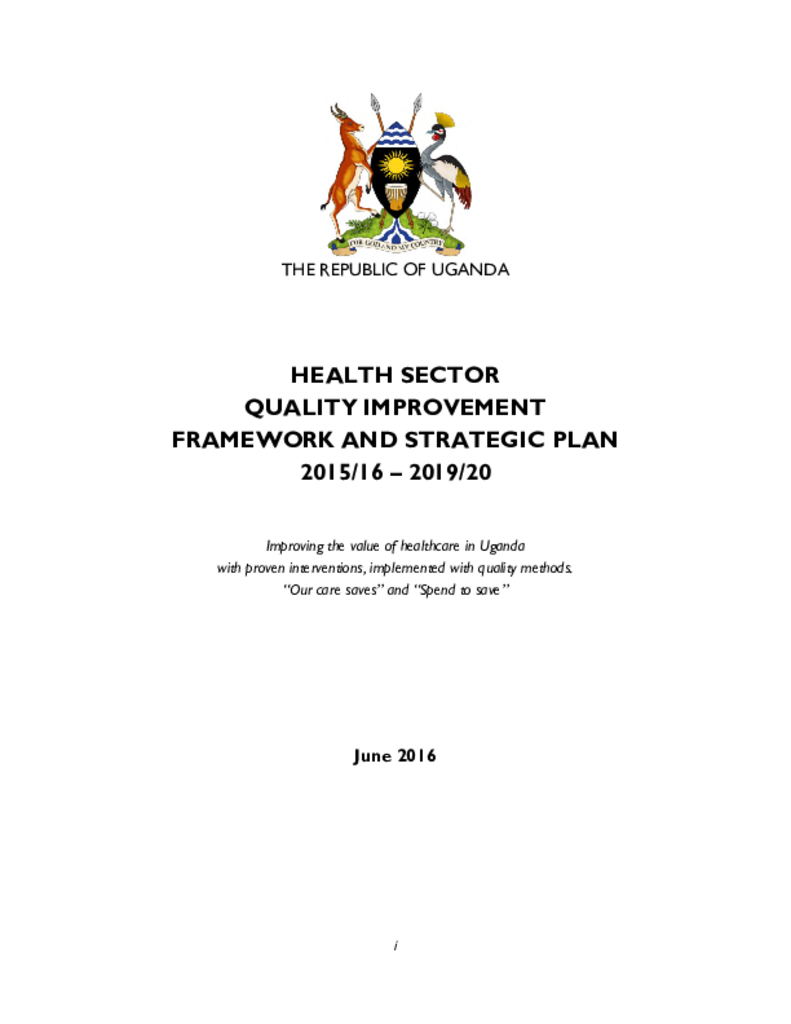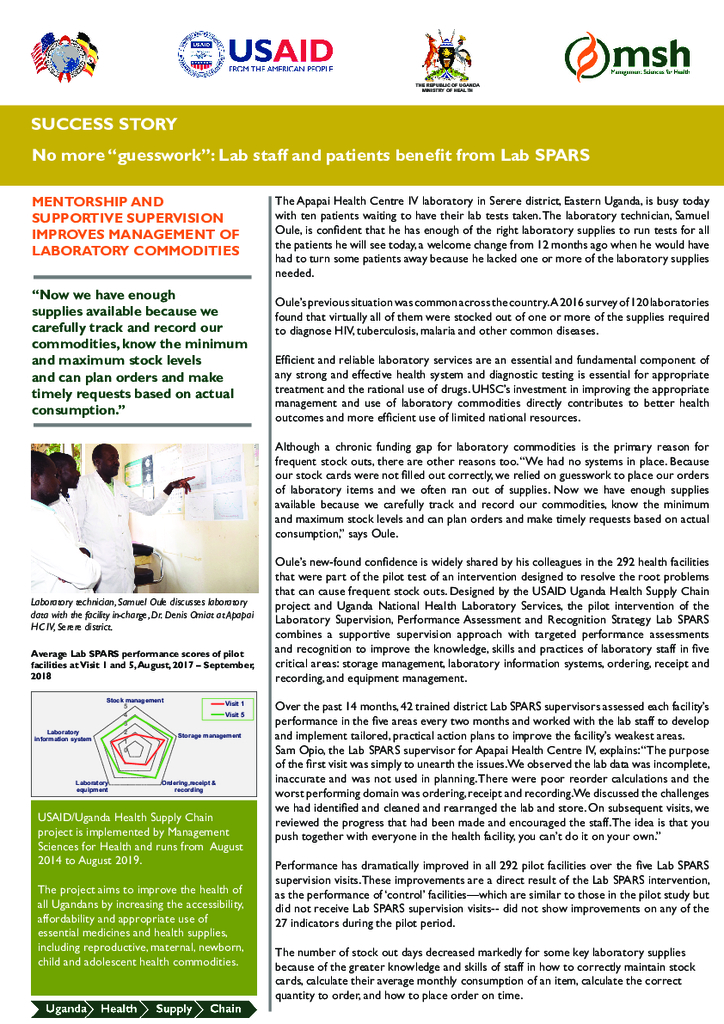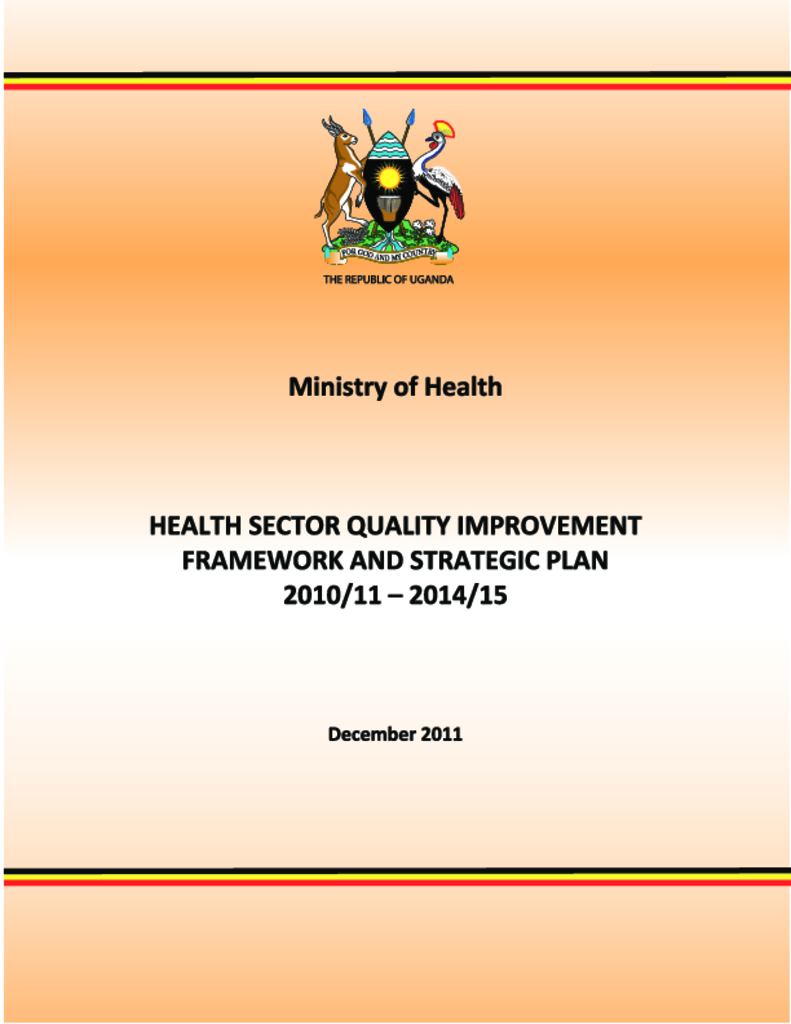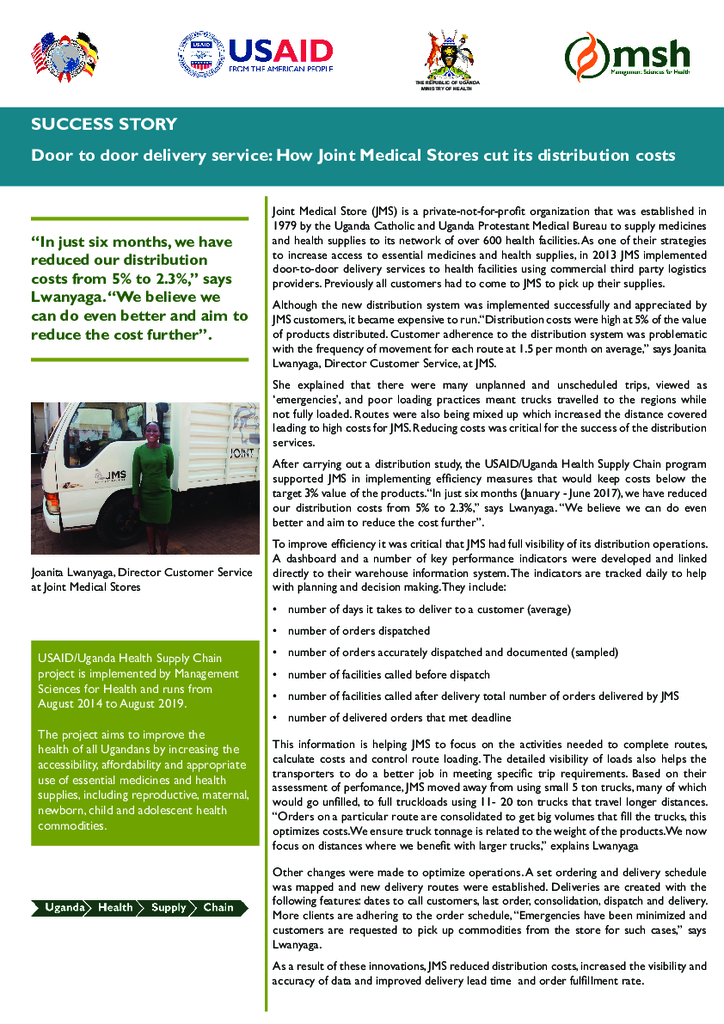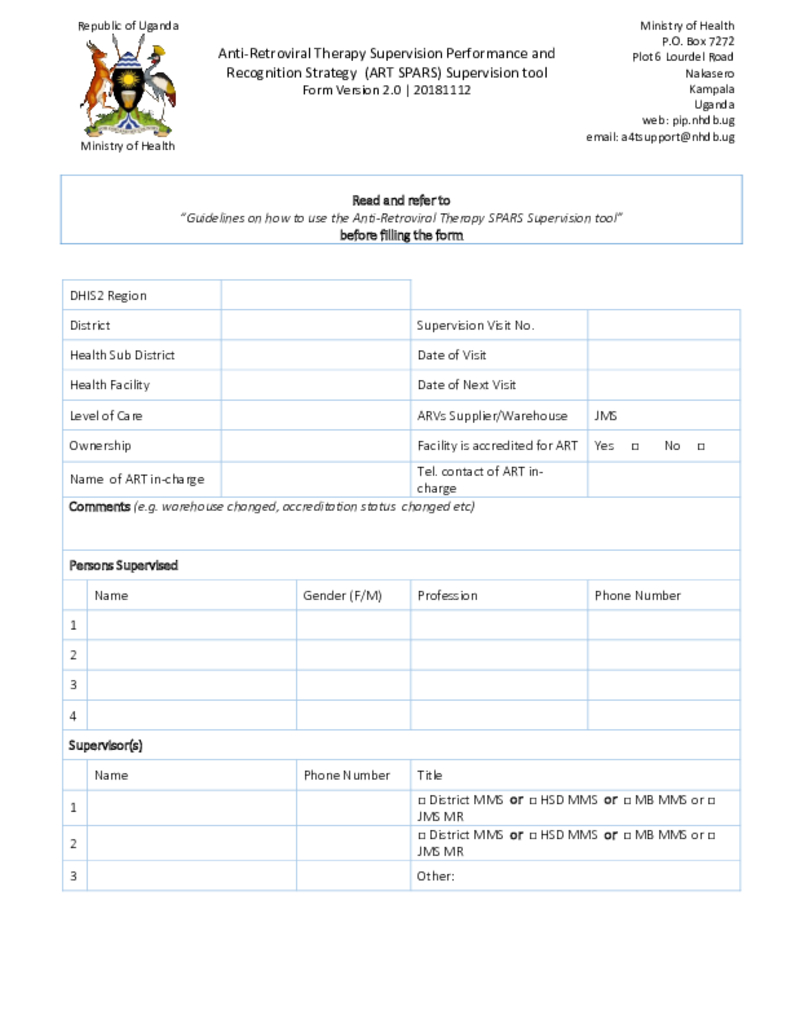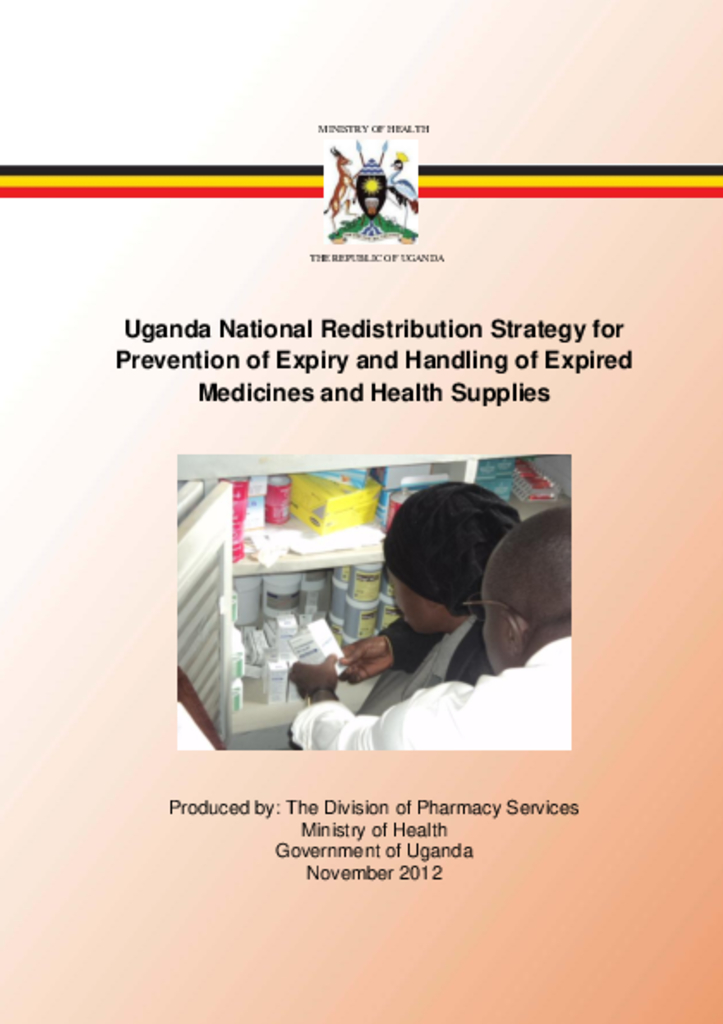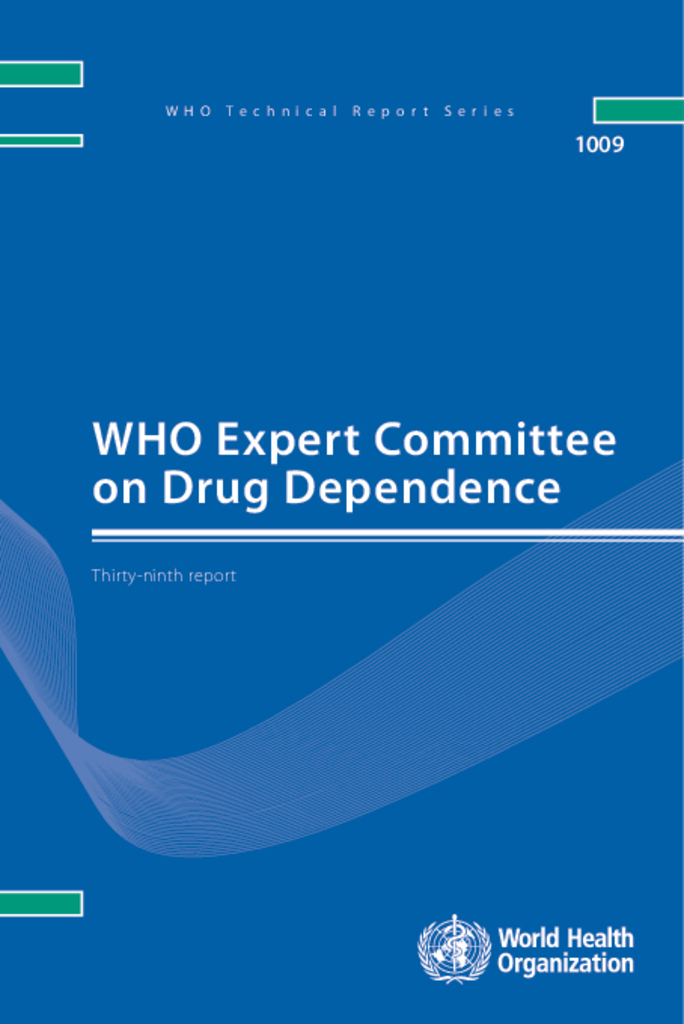The purpose of this report is to inform the Ministry of Health and all stakeholders of the stock levels in the country as a tool that enables appropriate logistics decisions making . This report highlights stock status, real challenges, bottlenecks but also recommends potential solutions to mitigate stock outs and expiries of ARVs & HIV test kits, ACTs, Anti-TB medicines, Reproductive Health items, selected Laboratory commodities,Vaccines and selected medicines for treatment of Opportunistic Infections In the Repubic of UgandaThis report serves to: - Act as an early warning indicator for potential stock outs and possible expiries of EMHS- Identify challenges and recommendations to avert supply interruptions- Encourage preparation and sharing of joint supply plans with stakeholders- Identify strategies for regularly reviewing supply plans for all the commodities - Encourage donors to honor their commitments in terms of quantities of products expected, timeliness of deliveries and flexibility
In accordance with the Constitution of Uganda, all citizens are entitled to access high quality and cost effective public services. Efficiency, effectiveness, transparency and accountability in service delivery require that sectors and institutions develop, document, disseminate and apply standards. This will enable the sectors to be responsive to service recipients and to attain the national development objectives. A standard is defined as an established, accepted and evidence-based technical specification or basis for comparison
The World Health Organization (WHO), the United Nations Children’s Fund (UNICEF) and many other organizations are involved in the procurement of pharmaceutical products. In particular, the supply of pharmaceutical products used in the treatment of human immunodeficiency virus/acquired immunodeficiency syndrome (HIV/AIDS), malaria and tuberculosis has become a major concern at both the international and country levels. Commitments by the European Commission and G8 countries, among others, offer the potential for significant increases in funding for efforts to combat communicable diseases. Low-cost pharmaceutical products of assured quality have the greatest potential for maximizing the impact of these efforts.
In 2011, SPARS was adopted by the Ministry of Health (MoH) as a national strategy to build district level capacity in supply chain
management of medicines and health supplies. Medicines and health supplies are the second biggest expenditure in the health sector after human resources and therefore their management is critical in ensuring effective health service delivery. Experience from the last five years has shown that the Supervision, Performance, Assessment and Recognition Strategy (SPARS) can effectively improve facility performance in managing their essential medicines and health supplies through sustainably building the health worker skills, knowledge, attitudes, and practices. The purpose of these guidelines is to provide district health teams, implementing partners and donor agencies with a reference manual on what it takes to comprehensively implement SPARS. The MoH Pharmacy Department spearheaded development of these guidelines to facilitate the planning, maintenance of SPARS implementation and to ensure a quality, standardized approach in implementing this important district-level capacity building initiative.
The health sector aims to provide services of an acceptable level of quality, to ensure the clients are able to maximize the health benefits from available care. good quality of care will enhance clients satisfaction and their use of services
The Apapai Health Centre IV laboratory in Serere district, Eastern Uganda, is busy today with ten patients waiting to have their lab tests taken. The laboratory technician, Samuel Oule, is confident that he has enough of the right laboratory supplies to run tests for all the patients he will see today, a welcome change from 12 months ago when he would have had to turn some patients away because he lacked one or more of the laboratory supplies needed.
The Second National Health Policy (NHP II) puts the client and community at the forefront and adopts a client-centered approach with consideration of both the supply and demand side of healthcare. Good quality of care enhances clients’ satisfaction and their use of services. It increases job satisfaction and motivation among service providers, leading to effective and efficient utilization of resource
Joint Medical Store (JMS) is a private-not-for-profit organization that was established in 1979 by the Uganda Catholic and Uganda Protestant Medical Bureau to supply medicines and health supplies to its network of over 600 health facilities. As one of their strategies to increase access to essential medicines and health supplies, in 2013 JMS implemented door-to-door delivery services to health facilities using commercial third party logistics providers. Previously all customers had to come to JMS to pick up their supplies.
Anti-Retroviral Therapy Supervision Performance and Recognition Strategy (ART SPARS) Supervision tool Form Version 2.0 | 20181112. The tool contains “Guidelines on how to use the Anti-Retroviral Therapy SPARS Supervision tool”
Uganda is currently using both a push (kit -based) and pull (order -based) system to supply essential medicines and health supplies (EMHS) to health facilities. Higher-level health facilities (Hospitals and Health Centres level (HCIV) utilize the pull system by requesting EMHS from the National Medical Stores based on their budgets. Lower level health facilities (HC II and HC III) receive a “kit” with standardized types and quantities of EMHS. The kit system does inevitably result in over and under stocking. The degree of over/under stocking will vary by facility due to factors such as patient load, human resource capacity, EMHS utilization and disease patterns.
Development of the Gender Statistics Profiles is anchored in the Beijing Platform for Action, which underscores the need for gender analysis as one of the critical starting point for Gender Mainstreaming.
The main objectives of compiling the Gender Statistics Profile were to establish the level of awareness of gender issues and concerns within the Ministry; Generate gender responsive indicators for the sector; Repackage information to enhance availability and use of gender statistics by various stakeholders and Build skills of the Gender Focal Persons to generate gender responsive statistics. The profile provides a contemporary overview of gender and development concerns; as well as gender differentials in access, participation and use of services in the sectors.
The thirty-ninth meeting of the World Health Organization (WHO) Expert Committee on Drug Dependence (ECDD) took place in Geneva, Switzerland from 6 to 10 November 2017. Dr Suzanne Hill, Director, WHO Department of Essential Medicines and Health Products (EMP), opened the meeting by welcoming all participants on behalf of the WHO Director-General. Dr Mariângela Simão, Assistant Director-General for Access to Medicines, Vaccines and Pharmaceuticals, thanked the ECDD members for the time and effort they had dedicated to the review of the substances on the agenda of this ECDD meeting.
